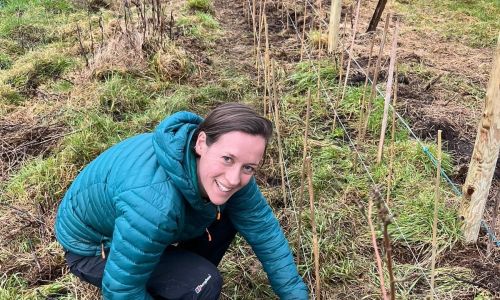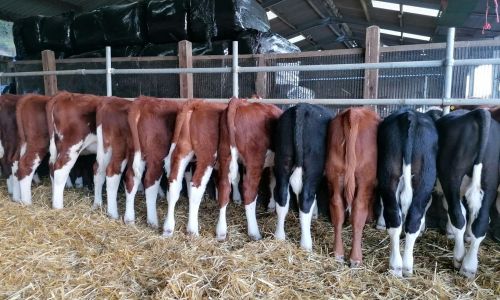The role of assurance schemes in animal welfare and sustainable diets
Reflecting on the role of farm assurance in driving animal welfare on farms
Laura Higham
Earlier this year, the higher welfare assurance scheme RSPCA Assured was the subject of an investigation by the animal rights charity, Animal Rising. Examination of footage from 45 pig, chicken, and salmon farms across the UK revealed distressing scenes and conditions amounting to multiple breaches of legislation and Defra Codes of Conduct, according to a group of vets, animal welfare professors, and legal professionals.
The benefits of assurance
The results of this investigation were met with widespread media attention and catalysed debate amongst the food and farming community regarding the integrity and value of assurance schemes. On one side, food assurance provides farmers with a financial incentive to increase standards and provides them with a marketing advantage. Indeed, research has shown higher welfare metrics on RSPCA Assured farms, than on farms certified by the lower standard scheme, Red Tractor. Assurance food labels are also a vital link connecting producers with consumers that share their values, within a complex industrial food system that segregates people from their food.
Shortfalls in assurance
However, this is not the first and undoubtedly won’t be the last exposé of assured farms. Research indicates that existing systems of farm assurance – regardless of the label – are failing to fully deliver for both farmers and consumers, and the results of investigation suggest it may be failing to deliver for some animals too.
Supply-side problems with existing systems of certification include low ambition levels and limited scope within many schemes, cost and time barriers to certification for farmers, the questionable efficacy of pre-announced audits, and the inability of schemes to effectively capture context-specific outcomes. Demand-side challenges to assurance schemes include the confusing array and complexity of food labels on offer to citizens, and competing time and budgetary requirements that relegate higher food standards down the priority list for many households.
RSPCA Assured have taken steps to combat some of these shortfalls by initiating an independent review of their scheme and initiating an 'ambitious modernisation programme', including increasing frequency of unannounced visits and use of technology.
Moral debates
However, the debate within the food and farming community is transcending divided opinions over assurance scheme standards – becoming a deeper philosophical and moral discussion about equitable and sustainable human-animal relations.
On one side of the debate, Animal Rising argues that the RSPCA is “covering up cruelty on an industrial scale”, and profiting from it to the tune of around £4m a year in fees from farms. Animal Rising has abolitionist aims of ending animal farming, and consider the improvements catalysed by welfare certifications as counterproductive by hindering opportunities for more systemic change towards plant-based diets.
On the other hand, proponents of the RSPCA Assured scheme may represent the ‘welfarist’ denomination of utilitarian perspectives. Such viewpoints may support certification as a practical response to prevailing models of intensive animal production and their shortcomings, involving improvements to standards in the absence of immediate opportunities for broader reform.
The future of assurance
A question now remains, will any changes arise from these discussions? Ultimately, those advocating for animal welfare may share an ambition that all animals deserve a ‘good life’, yet the current food system involves billions of animals that do not enjoy both physical health and mental wellbeing including positive affective states. RSPCA Assured standards aim to provide such conditions, and their abolition would remove these important levers for improving and investing in higher welfare at farm level, leaving huge numbers of animals at risk in the immediate future.
However, a gap between standards and desired outcomes may exist: acknowledging the shortcomings of farm assurance, schemes together with government and food businesses could reinvent their standards and systems of farmer recruitment, verification, and reward, to ensure all farmers can be appropriately incentivised and recompensed for delivering ambitious outcomes that tackle the challenges and leverage opportunities presented in each unique farm context. Furthermore, most assurance schemes do not offer robust and ambitious assurance across all three of the One Health domains - a gap that could be filled by reinvented schemes incorporating a spectrum of sustainability objectives and outcomes. Lastly, clear systems for the reporting of welfare problems on farms could act as an early warning system, allowing farm visitors including veterinary professionals to alert assurance organisations and spark urgent investigations to alleviate welfare issues.
The role of veterinary professionals
Veterinary professionals have a crucial role in improving animal welfare outcomes on farms, both independent from and as part of assurance standard compliance. In addition to our day-to-day clinical and non-clinical services, we can engage in the many programmes and platforms that foster vet-farmer collaborations to support the health and welfare of farmed species, such as the Mobility Mentor Scheme and Flock Health Clubs, amongst many others. Constructive collaborations with farming clients are key to enabling and inspiring welfare improvements on farms.
Less and better
Addressing a need for broader food system reform, welfarists could take this opportunity to align around reducing animal production and consumption, in line with the ‘less and better’ movement supported by the UK’s National Food Strategy and many organisations including the RSPCA, Eating Better, and British Veterinary Association. Future assurance initiatives face the dual challenge of increasing the market share of more sustainable food options, whilst more visibly and proactively championing reduced animal product consumption.
Recommended resources on this topic
Rethinking animals in agriculture – event recording from Table Debates
Choose Assured products for animal welfare - #ChooseAssured infographic from BVA
Unravel Your Food – new website (coming soon!) bringing together information and guidance for citizens



